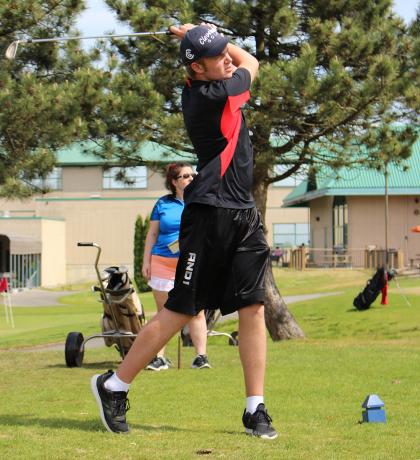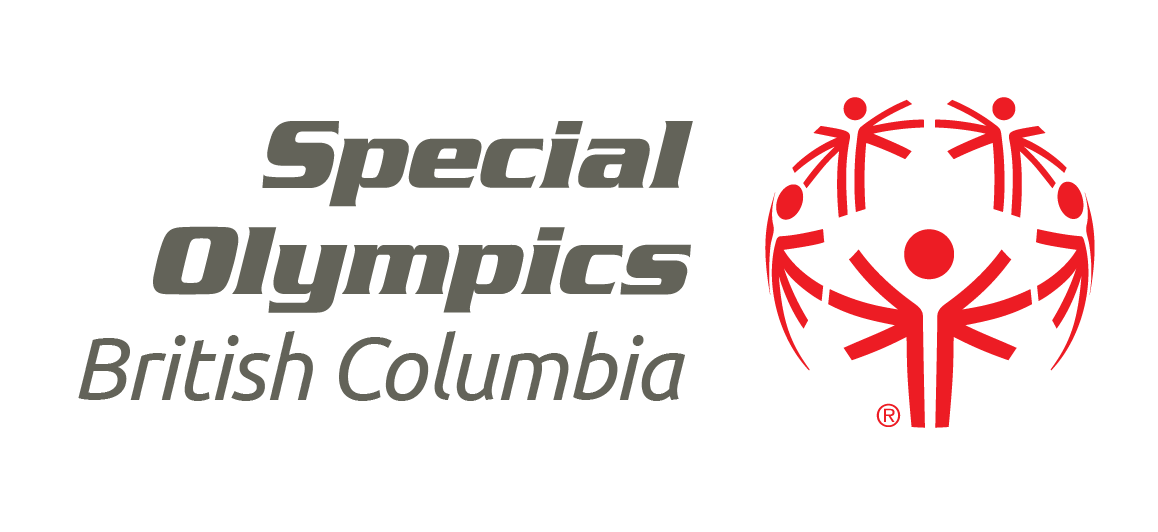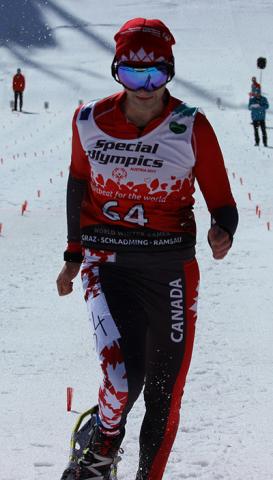
Special Olympics North America is launching Virtual Health Messenger Training, and has selected a small group of athletes from throughout the region to complete the pilot program. Special Olympics BC is so pleased to share that Matthew Hender of SOBC – Quesnel and Tony Wilkinson of SOBC – Kelowna have been selected to participate!
Starting April 14, the athletes will complete two courses a week for four weeks through an online platform. They will cover overall health, fitness, nutrition, hydration, communication, and advocacy, and they will develop a practicum project they will execute after the course to help their peers and communities.
Below please find the inspiring applications submitted by Hender and Wilkinson. Congratulations and thanks to these two amazing athletes – can’t wait to see what they will learn and share with our province!
Matthew Hender
My name is Matthew Hender. I am 16 and I do a whole week’s worth of Special Olympics sports. In the summer I do soccer, track and field, and golf. During the long winter I do basketball, floor hockey, Club Fit, and curling. Doing so many different sports is very beneficial to my overall fitness and it is great for meeting new people. Special Olympics has helped me greatly in expanding my social and life skills.
Ever since about a year after I joined Special O, I’ve realized that physical fitness and leading a healthy life are the most important things to me. I’m all that I’ve got. My entire quality of life is all dependent on these two things. I work out very often and practice my sports with what I can at home. I say very often because everyone needs to take days off; not just for the need to do something else, but because it is never good to over work yourself. I’ll never be one of those glass-boned testosteronal guys that wear muscle shirts saying, “No Pain No Gain.” No thanks. Fitness should always be approached with a calm, reasonable attitude. Sometimes overworking yourself can be worse than underworking yourself.
Another way that I’m trying to lead a healthy life is by staying on top of my work. I’m currently studying for my driver’s test and working on my online classes. It is extra difficult right now to stay positive and keep a schedule due to this isolation, but I think that I’m doing a decent job at it. I am also a principal’s and effort role student at my high school. I love learning and take pride in my work.
I’ve been quite lucky to have such a healthy life, and for the most part it has stayed that way. Like a lot of Autistic kids, I used to be very weak in the arm department. I was a skinny little kid until about Grade 4 when I started to get quite fat (for what was considered at the time). It’s stupid to think about now because back then I hated sports, but I was extremely jealous of the popular hockey kids. My goal to be social and athletic was just a dream because I had no plan.
From Grade 5 to about mid-Grade 7, I hit the mental stage of puberty. When I was doing schoolwork, I had little motivation to try and when I was with friends I acted like a damn fool. No office or suspensions or anything that bad, but I was definitely at that middle school level before everyone else was. Those last years of elementary were some of the hardest and stress filled years of my life. But when I got to Grade 8 and switched to middle school, things only got better. I had matured so much just in time for everyone else to start my previous struggle. I had better teachers and developed a way better relationship with them, along with much more respect.
By the start of Grade 9 I had hit 6 feet tall and was starting to develop these guns. I joined Special O and only got more athletic, social, and polite from there on. I have lost 25 pounds since joining Special Olympics. I hope I didn’t bore you with this long story, but when you put the quarter in, you’ve got to watch the gumball spiral all the way down.
To help my fellow athletes become healthier, I need to be more encouraging on the field. We are already doing a great job in covering our diets thanks to our awesome Special Gourmet cooking class. I’m thinking about doing a program where we train in some way over the weekend, and then we can share our workouts on Facebook; or we can share them at club fit on Monday. We have a lot of athletes at Club Fit so maybe we can just go around the room asking everyone if they did anything over the weekend, they share, and at the end we specifically give everyone who worked out a round of applause and/or a sticker. Brilliant! Last year, I set a time once a week (on the weekend) to meet with a fellow athlete and train for soccer. Soon, a couple of other athletes joined us. This was a great way to develop our skills. Today I am going to phone some of our athletes that might be alone during this isolation. I want to check in with them and see how they are doing.
It is important for people with disabilities to be included in their health care plans. Any problem is best solved by contribution of the people affected. As long as we broaden the voice of our most respected and most valuable athletes, that voice will keep the government aware of our needs. It will sometimes need to be translated from person to person depending on people’s communication skills, but everyone’s opinion is unique and has value. I do argue that it is very important which individuals advocate for this. There are unfortunately people with disabilities who have lost hope in themselves or don’t care about leading a healthy life. But in most cases, there is always someone who knows what’s best for these individuals.
Thank you for reading this heart-filled extensive letter and I hope you enjoyed reading it as much as I enjoyed writing it.
Please click here to read more about Matthew
Tony Wilkinson
Hi – my name is Tony Wilkinson and I am applying to be a Health Messenger.
I would be a good Health Messenger because I have learned what it takes to be a healthy athlete from attending performance camps with Special Olympics BC, and from sessions on health as a member of Team BC and Team Canada. I learned about the importance of eating properly, exercising regularly, and taking care of your mental health as well.
I have also completed Athlete Leadership training and Healthy Athletes Screening Health Hero courses in March 2020. This would be an excellent opportunity for me to practice what I learned.
I learned firsthand the benefits of following a healthy lifestyle, and I would like the chance to share this with others.
My most recent health story is how I had injured quad muscles while competing in snowshoeing at the Special Olympics BC Provincial Winter Games in 2019. In order to prepare and compete at the 2020 National Winter Games, I had to work extra hard. I committed to a regular exercise plan, which included a lot of stretching, eating more healthy foods, and working on my mental health by discussing my concerns and progress with my parents. This allowed me to lose 10 pounds, increase my fitness, and be confident when I competed. I was happy to come home with two gold medals and two silver medals from National Games.
My workout routine included exercises that any athlete can do on their own at home with no equipment such as sit ups, push ups, squats or arm curls with a simple band.
I believe we, athletes with intellectual disabilities, need to share our stories and struggles to make sure we have access to health care and live a healthy lifestyle, so that we can live our best life. We need the same opportunities as everyone else.
I have an interest in being healthy, and would like to share this with other athletes so that they can improve like I have, and learn through my stories and experiences. I have researched a few things that are examples of what to share if I am a Health Messenger.
Please click here to read more about Special Olympics BC Athlete Leadership opportunities
Please click here for SOBC athlete health and at-home training resources

